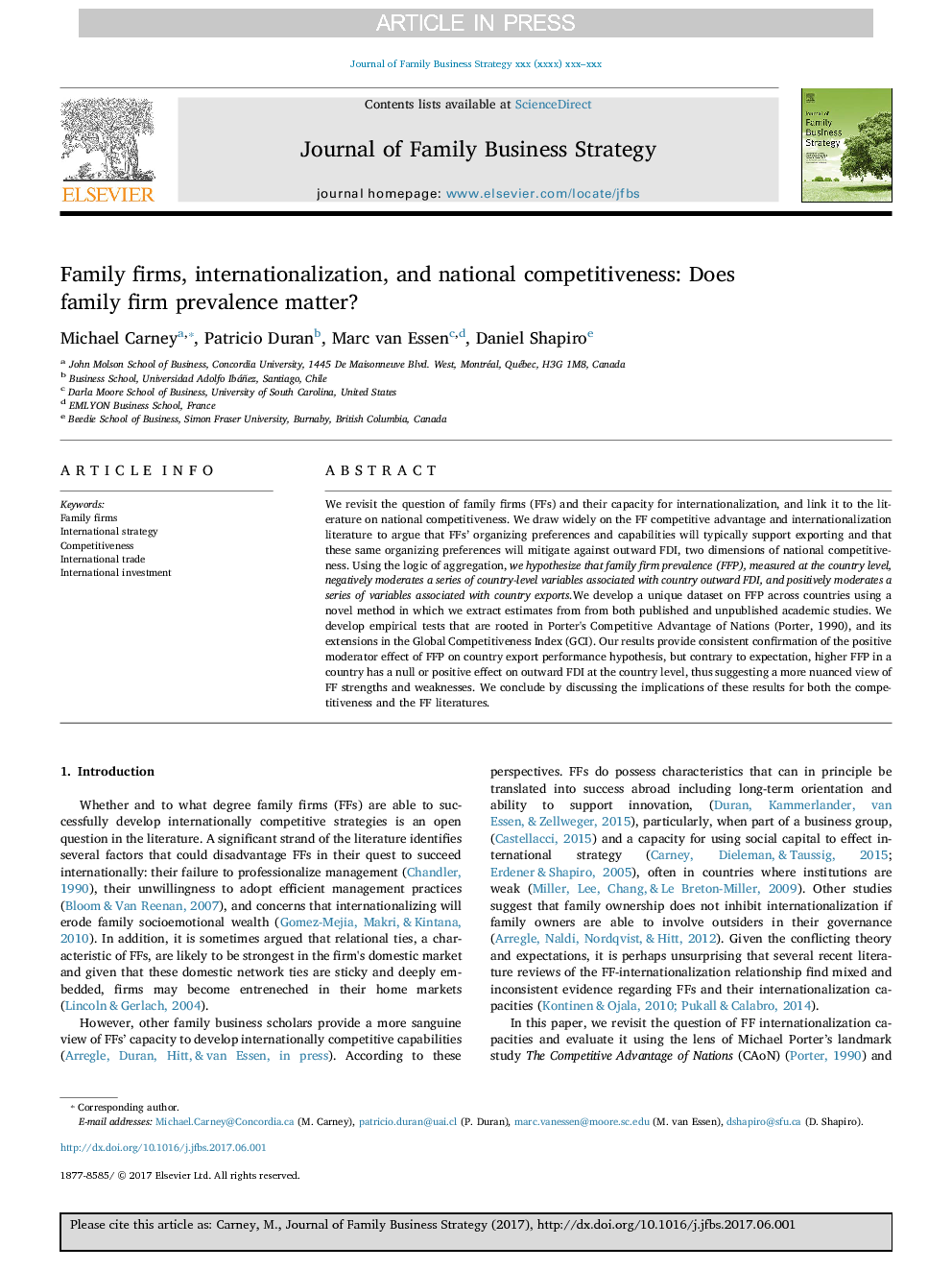ترجمه فارسی عنوان مقاله
شرکت های خانوادگی، بین المللی شدن و رقابت ملی: آیا شایستگی شرکت های خانوادگی مهم است؟
عنوان انگلیسی
Family firms, internationalization, and national competitiveness: Does family firm prevalence matter?
| کد مقاله | سال انتشار | تعداد صفحات مقاله انگلیسی |
|---|---|---|
| 81756 | 2017 | 14 صفحه PDF |
منبع

Publisher : Elsevier - Science Direct (الزویر - ساینس دایرکت)
Journal : Journal of Family Business Strategy, Volume 8, Issue 3, September 2017, Pages 123-136
ترجمه کلمات کلیدی
شرکت های خانوادگی، استراتژی بین المللی، رقابت پذیری، تجارت بین المللی، سرمایه گذاری بین المللی،
کلمات کلیدی انگلیسی
Family firms; International strategy; Competitiveness; International trade; International investment;

